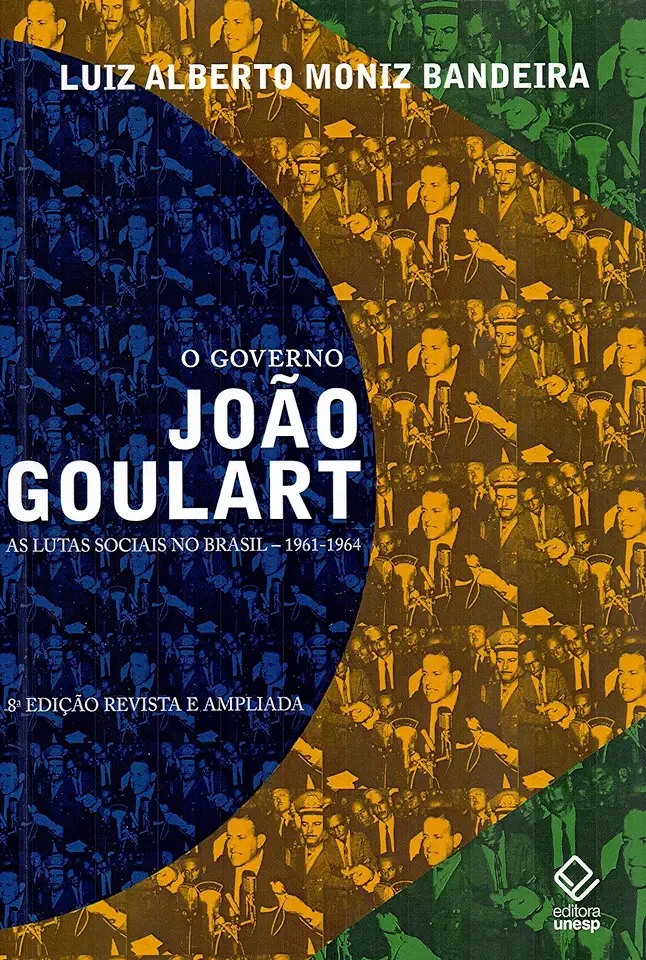
The João Goulart Government and Social Struggles in Brazil 1961-1964 - Moniz Bandeira
The João Goulart Government and Social Struggles in Brazil 1961-1964 - Moniz Bandeira
A Comprehensive Analysis of a Pivotal Era in Brazilian History
In his groundbreaking book, "The João Goulart Government and Social Struggles in Brazil 1961-1964," renowned historian Moniz Bandeira delves into a crucial period in Brazil's history, shedding light on the tumultuous events that shaped the nation's political landscape. Bandeira's meticulous research and captivating narrative provide a comprehensive analysis of the João Goulart government, its policies, and the social struggles that ultimately led to its downfall.
A Nation in Transition
The book begins by setting the stage for the political climate in Brazil during the early 1960s. Bandeira paints a vivid picture of a nation grappling with profound social and economic inequalities, widespread poverty, and a growing desire for change. Against this backdrop, João Goulart, a charismatic and progressive politician, rose to power, promising to address these pressing issues and usher in a new era of social justice.
Policies of Progress and Resistance
Bandeira meticulously examines the policies implemented by the Goulart government, highlighting its efforts to promote land reform, expand education opportunities, and improve the lives of the marginalized. However, these progressive policies faced fierce opposition from conservative elites and powerful economic interests, who feared the erosion of their privileges. Bandeira skillfully unravels the complex web of political maneuvering and resistance that characterized this period, providing a nuanced understanding of the challenges faced by Goulart and his supporters.
Social Movements and Popular Mobilization
One of the strengths of Bandeira's book is its exploration of the social movements and popular mobilizations that emerged during this time. He vividly portrays the struggles of peasants, workers, and students who demanded better living conditions, labor rights, and democratic participation. Bandeira's analysis of these grassroots movements highlights their crucial role in shaping the political discourse and challenging the status quo.
The Road to Crisis and Coup
As tensions escalated and the political climate grew increasingly polarized, Bandeira meticulously traces the events leading up to the military coup that ultimately toppled the Goulart government in 1964. He examines the role of conservative elites, foreign intervention, and the manipulation of public opinion in orchestrating the downfall of a democratically elected government. Bandeira's account of these events is both gripping and thought-provoking, offering valuable insights into the fragility of democracy and the dangers of authoritarianism.
A Legacy of Struggle and Resilience
In the concluding chapters, Bandeira reflects on the legacy of the João Goulart government and its impact on Brazilian society. He argues that despite its eventual downfall, the Goulart era left an indelible mark on the nation's political consciousness, inspiring future generations to fight for social justice and democratic ideals. Bandeira's book serves as a powerful reminder of the enduring struggle for a more equitable and democratic Brazil.
A Must-Read for Historians and Social Scientists
"The João Goulart Government and Social Struggles in Brazil 1961-1964" is a must-read for historians, social scientists, and anyone interested in understanding the complexities of Brazilian politics and society. Moniz Bandeira's masterful storytelling and rigorous scholarship make this book an essential addition to the literature on Brazil's history.